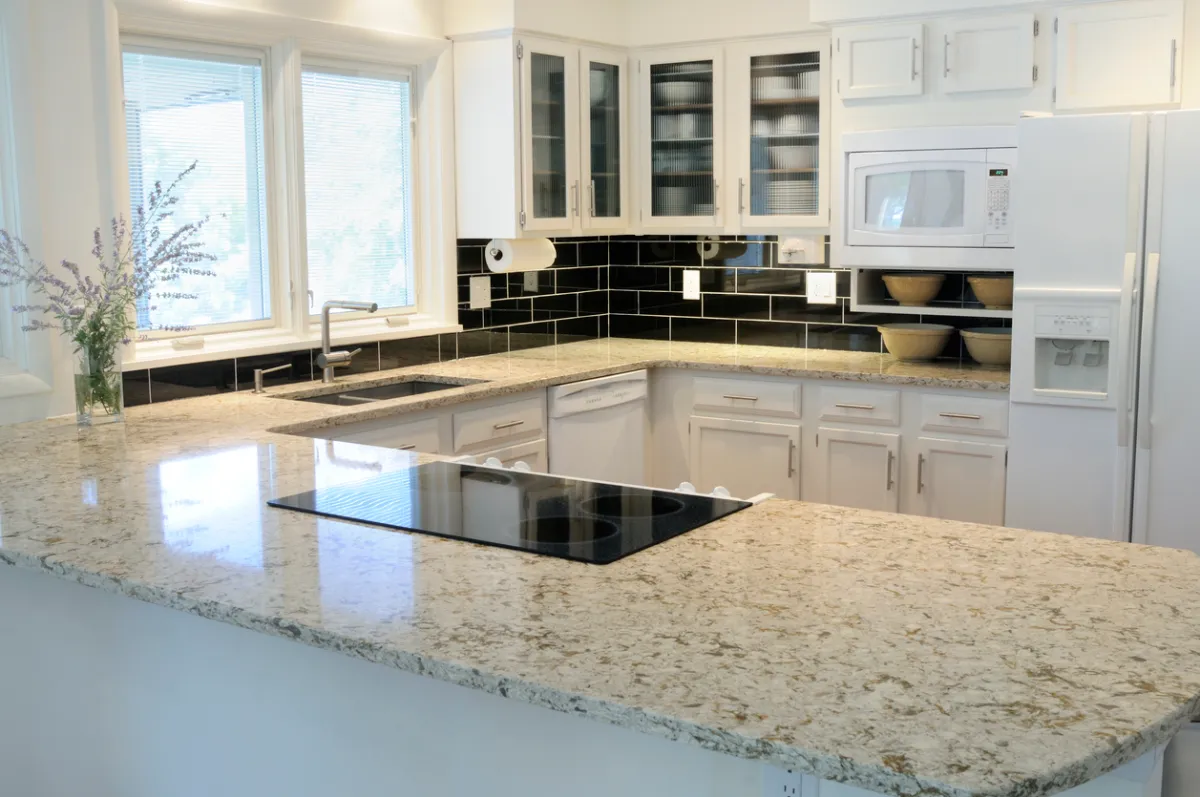The home is your refuge and your kitchen countertop is its heart. More than where you cook, it is a meeting place for family and friends. Why wouldn’t you want that important room to be one of the cleanest spaces in your home? With the right materials, your kitchen is not only easier to clean, but countertops are also much easier to maintain.
Keep Your Kitchen Clean While Cooking
Beyond the headline-making coronaviruses, there are other germs you need to protect yourself from, especially in the kitchen where food is prepared. E. coli, salmonella, and listeria have historically been some of the most common disease-causing bacteria in the United States, and they can all be found hidden in the kitchen. The Los Angeles Times has shared some solid advice for keeping your kitchen as clean as possible:
Immediately wash dirty dishes, cutting boards, pots, and pans.
Always wash your hands after preparing your food, including before you sit down to eat.
Have a cleaning routine that includes wiping surfaces regularly.
Take out the trash often.
Clean while cooking.
Be sure to avoid cross-contamination by ensuring that raw meat does not touch anything else and by dedicating a separate cutting board to it.
Resist “double dipping” when you taste your culinary creations. Use a new spoon each time.
Houzz.com also has great information on cleaning routines to keep your home virus-free, which is worth checking out whether you’re cooking more or less.
Germs on Kitchen Countertops
The truth is, many beautiful materials are porous, including wood and natural stone. When bacteria find exactly what they need—food, moisture, and a comfortable temperature—they can thrive in tiny indentations on these surfaces. To further reduce the presence of harmful bacteria, viruses and other less undesirable substances such as fungus and mold, we recommend a non-porous countertop surface for your kitchen. Beyond being free from naturally occurring cracks or crevices, these surfaces are not prone to abrasion, staining or pitting (all signs of softer, more porous surfaces).
Quartz Countertop
Quartz is one of the most durable and hygienic countertops made from a blend of natural minerals held together using polymers and resin. As a result, quartz countertops are nonporous and have nowhere for bacteria to hide. Recommended daily care for your quartz countertop is also easy — all you need is a non-abrasive cleaning cloth with soap and water.
Solid Surface Bench
Developed by blending pure acrylic resin with natural minerals. Its mortar-free design makes cleaning and maintenance a dream of homeowners. The solid surface is non-porous and stain resistant. All that is required for cleaning is a soft cotton cloth and warm, soapy water. DO NOT use harsh commercial cleaners on Corian as they can damage your solid surface counters. Also, don’t use window cleaners that can leave a waxy residue on the surface. Our favorite feature of solid surface countertops is that they are ultra-durable, repairable, heat and knife resistant.
Laminate Countertop
Laminates have come a long way and offer a high-end look at an affordable price. We especially love that some of their high-definition laminates are antimicrobial and can create almost any look you want, from natural stone to wood.
Laminate countertops are durable for a long time. You also want to avoid causing excessive damage to the surface as much as possible.A soft, cotton cloth and soapy water or mild household cleaners will take care of the daily cleaning. However, if excessive amounts of water remain on laminate countertops, especially near the joints, the countertop will swell and create more opportunities for bacteria, fungi, or mold to grow.
Granite Countertops
Granite is a popular natural stone countertop surface made by mother nature. Confirmed by many users, granite consists of the highest grade of naturally occurring material. Like marble, granite must be sealed to reduce porosity. Professional sealing does more than preserve the natural beauty of granite countertops; Helps prevent harmful bacteria and other microbes from harboring. DO NOT use harsh chemical cleaners or bleach to clean your granite countertop.

